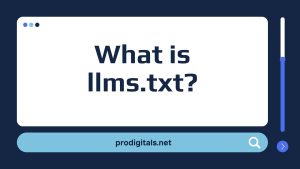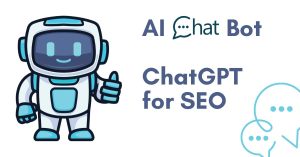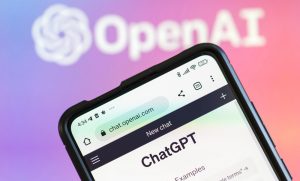The internet is a chaotic playground of bots—some useful, some intrusive, and others lurking in digital shadows. OpenAI’s GPTBot claims to be one of the good guys. But trust isn’t automatic, even with a big-name badge. Should you roll out the welcome mat or slam the door? Let’s dissect GPTBot’s role, its implications, and how to make an informed choice.
What Exactly Is GPTBot?
GPTBot is OpenAI’s dedicated web crawler, a digital scout foraging for public content. Unlike Googlebot, which indexes pages for search engines, GPTBot hunts for training data to refine AI models like ChatGPT.
Key Traits of GPTBot:
- Mission: Sharpen AI accuracy by absorbing diverse, up-to-date information.
- Behavior: Respects
robots.txtdirectives (usually). - Identity Tag: Its user-agent string is simply
GPTBot.
Ever asked ChatGPT about an obscure Reddit thread or a niche GitHub repo? Thank (or blame) GPTBot.
Why Does OpenAI Crave Your Content?
AI models fossilize without fresh data. The internet morphs daily—new slang, breakthroughs, and memes emerge at lightning speed. Without updates, ChatGPT’s replies would feel as stale as a dial-up connection.
Here’s the kicker: Your content might already be part of ChatGPT’s DNA. If your site was public pre-2023, OpenAI likely scraped it silently. Now, they’re offering a choice—a rare courtesy in the bot world.
The Case for Allowing GPTBot
1. Traffic Trickle from AI Citations
When ChatGPT references your content, it might drop a link. Users often click to verify facts—think of it as AI-driven curiosity traffic. Not a flood, but a steady drip.
2. Shape the AI’s Knowledge
Your expertise could mold how ChatGPT discusses your field. A cybersecurity blog? Your insights might train AI to explain zero-day exploits more accurately.
3. Low-Risk Crawling
GPTBot isn’t a bandwidth hog or a data thief. It behaves—assuming your site isn’t held together with digital duct tape.
The Case Against Allowing GPTBot
1. Irreversible Data Inclusion
Once OpenAI digests your content, it’s in the system—even if you block GPTBot later. Like trying to un-bake a cake.
2. Ethical Quandaries
Many creators resent AI firms monetizing their work without compensation. Blocking GPTBot is a silent protest against the data gold rush.
3. Legal Uncertainty
Copyright laws are scrambling to keep up with AI. The New York Times vs. OpenAI lawsuit highlights the gray area. If you’re risk-averse, waiting for legal clarity isn’t paranoid—it’s prudent.
How to Block or Customize GPTBot Access
OpenAI keeps it simple. To block GPTBot entirely, add this to your robots.txt:
User-agent: GPTBot
Disallow: / To allow crawling but exclude sensitive areas (like member-only pages):
User-agent: GPTBot
Allow: /articles/
Disallow: /user-dashboard/ For extra security, block GPTBot’s IP ranges via tools like Cloudflare. OpenAI publishes these here.
Real-World Scenarios: Who’s Doing What?
The SEO-Optimized Blogger
Meet Priya, a fintech writer. She allows GPTBot, betting that ChatGPT citations will drive clicks. Her traffic analytics show a 5% bump from users double-checking AI answers.
The Protective Artist
Carlos, a digital illustrator, blocks GPTBot. He’s seen AI tools mimic his style—no thanks. His stance? “My art isn’t training data.”
The Indifferent Retailer
Linda’s pottery shop couldn’t care less. Her product pages are Google-optimized; GPTBot won’t make or break her sales.
Expert Opinions: The Divided Verdict
- SEO Strategists: Split. Some see AI citations as the new meta-description; others fear losing clicks to ChatGPT’s instant answers.
- Legal Minds: Watching the EU’s AI Act and U.S. court battles closely. The rules are a moving target.
- Developers: “Bots will bot. Adapt or block.”
The Bottom Line: It’s Your Call
No universal answer exists. Allow GPTBot if you’re fine with AI learning from your work. Block it if you value control over your content’s fate. Unsure? Test the waters—you can always flip the switch later.
The internet thrives on chaos. Whether you’re Team AI or Team Opt-Out, knowledge is power. And hey, if GPTBot starts crawling memes, we’ll have bigger problems. Imagine ChatGPT dissecting “Woman Yelling at Cat” with academic rigor. Shudder.
Random Tangent: Why Do Bots Have Such Boring Names?
GPTBot. Googlebot. Bingbot. Where’s the creativity? SkynetScout or DataVulture would at least make server logs more exciting.
Pop Culture Nod
GPTBot crawling your site is like the Black Mirror episode where AI mimics voices—except it’s your blog posts getting a digital doppelgänger.
Final Thought: The web’s a wild west, and GPTBot’s just another sheriff (or outlaw, depending on who you ask). Choose your side—or stay neutral until the dust settles.



